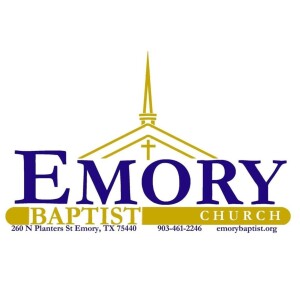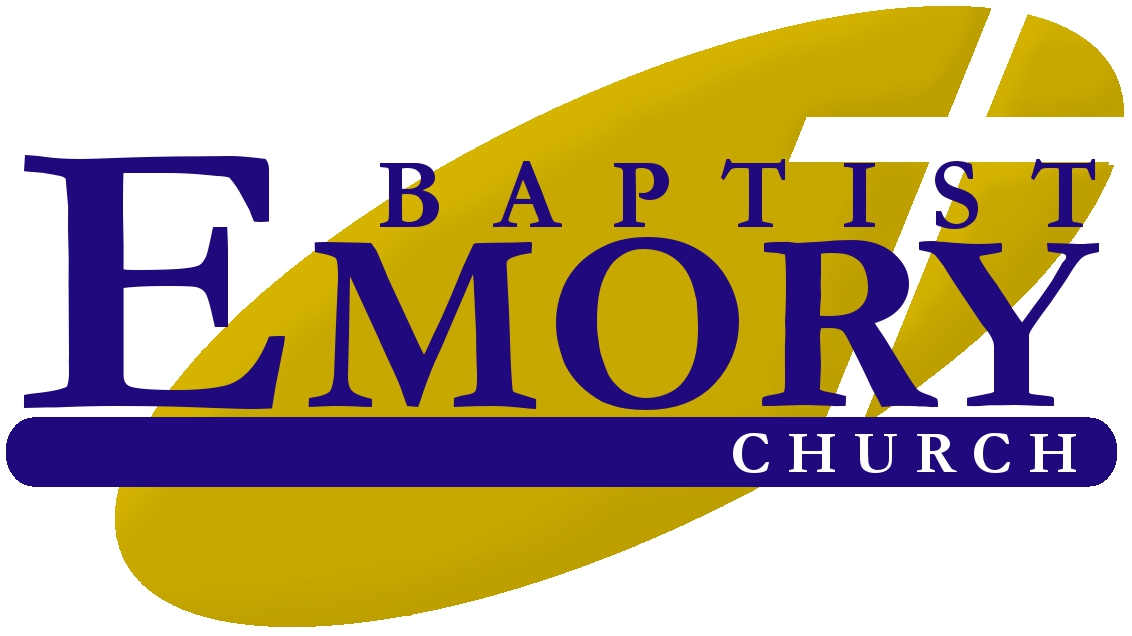Episodes

Thursday Jan 04, 2024
We All Need a Sonrise!
Thursday Jan 04, 2024
Thursday Jan 04, 2024
Luke 1 contains two very famous songs about two very famous children, John the Baptist and Jesus the Christ. Remember, John’s parents were Zacharias and Elizabeth, and Jesus’ parents were Joseph and Mary.
The first song in chapter 1 is called the Magnificat and was sung by Mary after the announcement of Jesus’ birth. It is found in 1:46-55.
The second song is called the Benedictus and was song by Zacharias after the birth of John the Baptist. It is this second song that will be our focus this morning in a message I have entitled, “We All Need a Sunrise!”
Zacharias’ song focused on two main individuals. They are his son, John the Messenger and his Savior, Jesus the Messiah.
According to verse 67, we can see that this song is inspired by the Holy Spirit and should be treated as prophesy. Interestingly enough, when we normally think of prophesy, we think of telling the future, and that is true.
However, in verses 68-69, Zacharias used three past tense verbs. They are visited, redeemed, and raised. Why did he use past tense verbs in telling the future?
These are called prophetic pasts. Zacharias was prophesying about the future by remembering the past. Zacharias was so confident that God’s plan would come to pass that he spoke of it as already having happened.
Also, notice again that Zacharias was filled with the Holy Spirit. That was true of his entire family.
His wife, Elizabeth, was filled with the Holy Spirit. See 1:41.
41 And it happened, when Elizabeth heard the greeting of Mary, that the babe leaped in her womb; and Elizabeth was filled with the Holy Spirit.
His son, John, would also be filled with the Holy Spirit. See 1:15.
15 For he will be great in the sight of the Lord, and shall drink neither wine nor strong drink. He will also be filled with the Holy Spirit, even from his mother’s womb.
Before Pentecost or the coming of the Holy Spirit in Acts 2, the Holy Spirit did not permanently dwell within God’s people. In the OT and even here in Luke 1, the Holy Spirit came upon individuals and would then leave them.
However, in Acts 2, the Holy Spirit came to indwell God’s people permanently from that point forward. When any and every person confesses Jesus Christ as Lord and Savior, the Holy Spirit causes that person to be born again and begins to live in that person for eternity. The Holy Spirit becomes the seal on that person’s heart.
Another action of the Holy Spirit is to fill us in daily living. Even though every saved person is already indwelt by the Holy Spirit, the older we get, the more we become like an old bicycle tire or old basketball.
We leak air, and need to be aired up again. In a similar way, we leak the filling of the Holy Spirit and need to be filled each and every day and maybe multiple times throughout the day.
How does that happen? It happens by reading or remembering and mediating and applying God’s word to our lives every day and throughout the day.
As for Zacharias’ song, notice in verse 76:
- The Occupation of John the Baptist, Luke 1:76
76 “And you, child, will be called the prophet of the Highest;
For you will go before the face of the Lord to prepare His ways,
In pointing to his own son, Zacharias prophesied of the occupation of John the Baptist. He will be called the prophet of the Highest or Most High, and he will go before the Lord to prepare His ways.
Don’t let his occupation or job of John the Baptist casually escape you. Israel had not had a speaking prophet in 400 years since Malachi, and John the Baptist would be the next.
That is huge, and he would prepare the way of the Lord. In other words, he would point people to Jesus.
Did you know that if you have been born-again, that is your job as well? It was John’s occupation or job to point people to Jesus, and it is your job too.
It is your job at work and at a school and at Wal-Mart and at El Manna. Just like John the Baptist, our occupation is to point people to Jesus.
- The Gratification from Jesus the Christ, Luke 1:68-75, 77
68 “Blessed is the Lord God of Israel,
For He has visited and redeemed His people,
69 And has raised up a horn of salvation for us
In the house of His servant David,
70 As He spoke by the mouth of His holy prophets,
Who have been since the world began,
71 That we should be saved from our enemies
And from the hand of all who hate us,
72 To perform the mercy promised to our fathers
And to remember His holy covenant,
73 The oath which He swore to our father Abraham:
74 To grant us that we,
Being delivered from the hand of our enemies,
Might serve Him without fear,
75 In holiness and righteousness before Him all the days of our life.
In verse 68, as John the Baptist will have his attention on one person, Zacharias turned his attention to that same person, Jesus the Christ or Jesus the Messiah. Zacharias is now going to demonstrate how Jesus the Messiah is the gratification or satisfaction of a promise to David, a promise to Abraham, and a promise to God’s People.
First, look at verses 68-69. Verse 68 begins with “Blessed is the Lord God of Israel.” In Latin, “blessed” is translated Benedictus.
Even though it hadn’t happened at the time of this prophecy, Jesus would be the fulfillment of this promise to David about the Messiah visiting and redeeming His people and raising up a horn of salvation. The end of verse 69 tells us that this Messiah would come from the house of David.
This original prophecy is recorded in 2 Samuel 7:8-17. The Lord spoke through Nathan to David. To summarize, the promised Messiah would persevere as this prophecy was initially fulfilled in Solomon and will be ultimately fulfilled in Jesus.
Second, not only will the Messiah be the gratification of a promise to David, but He will also be the gratification of a promise to Abraham. Verse 70 says that God spoke by the mouth of holy prophets of old and remembered His holy covenant that He swore to Abraham.
That oath was to protect Israel from her enemies, but it was not only to protect. It was to protect with a purpose. God saved Israel so that they would serve God. They would serve Him without fear in holiness and righteousness.
This promise to Abraham can be found in Genesis 22:15-18. After the Lord saw that Abraham was willing to offer his only son, God would in turn eventually offer His only Son as the promised Messiah as the gratification of this promise to Abraham.
Third, the promised Messiah is the gratification of a promise to God’s People. John the Baptist will point people to Jesus in order for them to be saved. Look at verse 77. John the Baptist will tell people to be saved by the remission or forgiveness of their sins.
Let that sink in just a moment. Here is the GOSPEL. First, God is holy. Second, you and I are sinners. Third, our sin separates us from God. Fourth, reconciliation or remission or forgiveness of sins only comes through repentance and faith in Jesus the Christ.
In the mercy of God, Jesus offers forgiveness of sins. He spoke about it Himself. See Matthew 26:28.
28 For this is My blood of the new covenant, which is shed for many for the remission of sins.
Peter spoke about it. See Acts 10:43.
43 To Him all the prophets witness that, through His name, whoever believes in Him will receive remission of sins.”
John the Revelator spoke about it. See 1 John 1:9.
9 If we confess our sins, He is faithful and just to forgive us our sins and to cleanse us from all unrighteousness.
You and I need our sins forgiven by Jesus. That is what it means to be saved. Jesus is the gratification or fulfillment of a promise made to God’s People.
- The Invitation for You the Sinner, Luke 1:78b-80
78 Through the tender mercy of our God,
With which the Dayspring from on high has visited us;
79 To give light to those who sit in darkness and the shadow of death,
To guide our feet into the way of peace.”
80 So the child grew and became strong in spirit, and was in the deserts till the day of his manifestation to Israel.
Verses 78-80 give a beautiful picture of forgiveness. It is like sitting in darkness.
Have you ever done that? Have you ever sat or stood in complete darkness? It is very odd not to be able to see your hand in front of your face.
That is what sin does. It makes you lose any sense of direction. It keeps us from knowing which way to go. It handicaps any and all progress.
However, Jesus the Messiah is the Dayspring or Sunrise or Dawn from on high, and when the sun rises, the darkness flees. When the sun rises, it lightens the path.
When the sun rises, according to verse 79, you can have peace with God. Paul confirmed that truth in Romans 5:1.
1 Therefore, having been justified by faith, we have peace with God through our Lord Jesus Christ.
Invitation
Some of you here this morning are sitting in darkness as we speak. You’re sitting in darkness because you have never had Jesus forgive your sins.
It doesn’t matter how long you’ve been a sinner. It doesn’t matter how you’ve sinned.
What matters is that you’re ready to respond to God’s invitation to let the Dayspring or Sunrise on high visit your life. You’re ready for Jesus to save you and forgive you and guide you and direct you.
Our invitation is for you this morning. Will you come?


No comments yet. Be the first to say something!